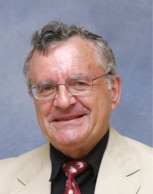Innovation/Global Crisis Blog
Gaddafi’s Real Crime Was Wasting Time
By Shlomo Maital
There is a link between the events we are watching on TV, as Libyan ‘rebels’ pursue Muammar Gaddafi, and a complex article published in the leading journal Science (C. A. Hidalgo, et al., The Product Space Conditions the Development of Nations. Science 317, 482 (2007).
Gaddafi was a brutal murderous dictator. He hung his foes in public squares and broadcast the event on live TV. He ruled for 42 years. He claimed to liberate Libya from the yoke of imperialism. What he really did was enslave Libya in a one-product oil economy that potentially could have fueled enormous rapid development and progress. Gaddafi wasted 42 years, or two generations. None of those years can be regained. Those two generations who lived under Gaddafi can rightly claim that his major crime was wasting their time.
Hidalgo et al.’s article produces a complex diagram that is actually beautifully simple.
Here is what this Figure means and what these scholars do to compute it. The graph portrays world trade. There are 775 circles, large and small, with one circle for each ‘industry’ in the SIC (Standard Industrial Classification). The circles’ size show the magnitude of trade, and the configuration of each circle (its position in x,y space) shows the extent to which the product is likely to be produced together with other related products. Circles close together are related; circles far apart are not. Circles on the periphery are more or less independent; circles in the core cluster are tightly interdependent.
What the figure shows is, of course, what we know already; countries that sell oil, and other raw materials, or specialize in raw-material-based products, only do that. Countries that produce sophisticated capital-intensive products (the inner dense core of circles) have complex ecosystems that combine a number of high-level industries, in complex trading networks with other nations.
Countries on the periphery of the global system are also on the periphery of the trade ecosystem. Their products are not interconnected with other products. Oil is a good example. Libya, before the revolt, produced 1.6 m. barrels of petroleum daily. That is 584 m. bbls. a year, worth about $58 b. (at $100/bbl.). Libyan oil is far lighter than Saudi oil, and hence was supplied to refineries in Europe best able to refine it. Since Libya has only 4 million people, if $58 b. were divided equally among all Libyans, they would each gain $15,000 a year. But of course it was sequestered by Gaddafi and his family and supporters.
As Hidalgo et al. note, “It is quite difficult for production to shift to products far away in the space, and therefore policies to promote large jumps are more challenging. Yet it is precisely these long jumps that generate subsequent structural transformation, convergence, and growth.”
Translation: It is hard for nations like Libya to practice “the adjacent possible” (see my earlier blog on this subject) and shift away from oil to higher value added products and services (petrochemicals, plastic, aluminum based on cheap energy, etc.). The oil wealth enables cruel dictators like Gaddafi and Iran’s Ahmedinajad and others to survive (without it, hungry people would have dumped them long ago), by giving the people just enough income to avoid deep penury. Iran cannot even refine its own gasoline, and has to import it. Yet this ‘adjacent possible’ (moving away from commodities to more and more sophisticated industries) is crucial. Qatar has made huge efforts to do this, and is worth benchmarking.
Gaddafi murdered, tortured and abused his people. He also wasted 42 years of their time. There is no international crime called “criminal incompetent waste of a country’s time”. There should be. It is not the colonial powers Libya should blame but the criminal incompetence of its long-time dictator.



Leave a comment
Comments feed for this article